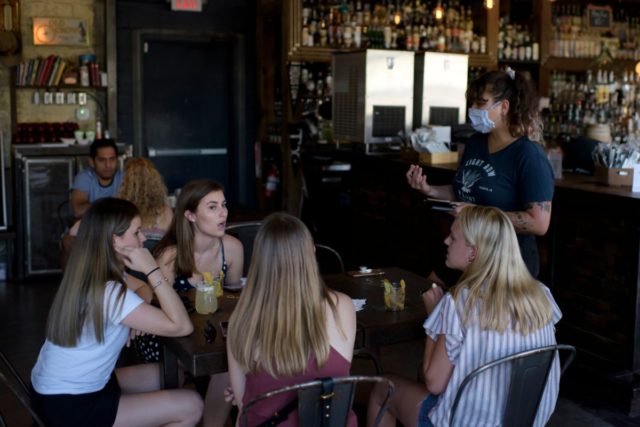Optimism is rising in the U.S. as an unseasonably cold spring weather fades and lockdowns have lifted, allowing more Americans to venture out of homes into much warmer weather.
The Conference Board said Tuesday that its confidence index climbed up to a reading of 86.6 in May from 85.7 in April, in line with the expectations of economic forecasters.
“Following two months of rapid decline, the free-fall in Confidence stopped in May,” said Lynn Franco, Senior Director of Economic Indicators at The Conference Board.
Although still near 6-year lows, May’s stabilization is the latest sign that the worst of the economic crash from the coronavirus is past and some of the weight on the U.S. economy is lifting.
The May survey also showed that the virus has not depressed the consumer outlook in recent weeks as much as it had in early spring. The share of consumers who expect business conditions to improve over the next six months rose from 39.8 percent to 43.3 percent. Those who foresee business conditions worsening declined from 25.1 percent to 21.4 percent.
“Short-term expectations moderately increased as the gradual re-opening of the economy helped improve consumers’ spirits. However, consumers remain concerned about their financial prospects,” Franco said.
The gauge of present conditions declined slightly from 73 to 71.1. The share of consumers who said business conditions are “good” dropped from 19.9 percent to 16.3 percent, while those who said business conditions are “bad” rose from 45.3 percent to 52.1 percent.
Consumers’ outlook for the labor market was mixed. On the one hand, the slice of Americans expecting more jobs in the months ahead declined from 41.2 percent to 39.3 percent. On the other hand, those anticipating fewer jobs in the months ahead also fell, from 21.2 percent to 20.2 percent.
Regarding their short-term income prospects, the percentage of consumers expecting an increase declined from 17.2 percent to 14.0 percent. But the share expecting a decrease declined from 18.4 percent to 15.0 percent, an indication that economic anxiety is waning.

COMMENTS
Please let us know if you're having issues with commenting.